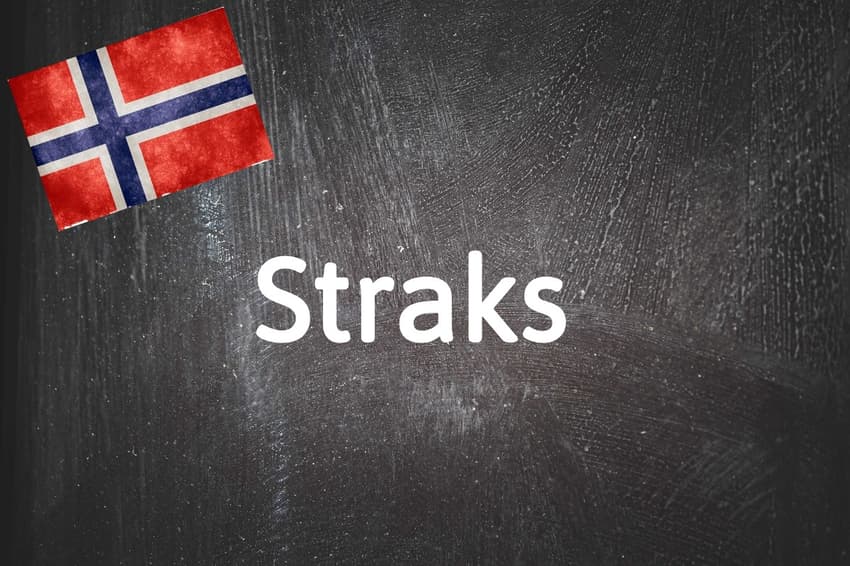Norwegian word of the day: Straks

We'll explain this one with no further delay.
What is straks?
Straks means that something is about to happen very soon. You might tuck into a bowl of ice cream straks after dinner or finish a project your boss asked you to work on straks.
It, therefore, means to do something immediately or close to immediately. It can also be passive, describing an immediate effect when something has happened.
While it's not always an exact substitute for "immediately", how soon it signifies depends entirely on the context. However, it is usually understood that it is sooner than another word, snart, which means "soon".
There is a bit of a grey area between how the two words are used, though. For example, you can say jeg er straks tilbake if you are going out to get something and won't be long, but won't be back immediately.
The two are almost interchangeable, but there will be occasions when straks doesn't make sense as an alternative to snart and vice versa.
You might use it to emphasise something surprising or unexpected, like in det ble straks en annen stemming da uinviterte gjester kom ("The atmosphere changed at once when the uninvited guests arrived"), or something expected: tilbudet var bra og ble straks akseptert av selger ("the offer was a good one, and the seller accepted immediately").
Examples:
Jeg kommer straks
I'll be there right away
Klokken er straks tolv
It is almost 12 o'clock
Comments
See Also
What is straks?
Straks means that something is about to happen very soon. You might tuck into a bowl of ice cream straks after dinner or finish a project your boss asked you to work on straks.
It, therefore, means to do something immediately or close to immediately. It can also be passive, describing an immediate effect when something has happened.
While it's not always an exact substitute for "immediately", how soon it signifies depends entirely on the context. However, it is usually understood that it is sooner than another word, snart, which means "soon".
There is a bit of a grey area between how the two words are used, though. For example, you can say jeg er straks tilbake if you are going out to get something and won't be long, but won't be back immediately.
The two are almost interchangeable, but there will be occasions when straks doesn't make sense as an alternative to snart and vice versa.
You might use it to emphasise something surprising or unexpected, like in det ble straks en annen stemming da uinviterte gjester kom ("The atmosphere changed at once when the uninvited guests arrived"), or something expected: tilbudet var bra og ble straks akseptert av selger ("the offer was a good one, and the seller accepted immediately").
Examples:
Jeg kommer straks
I'll be there right away
Klokken er straks tolv
It is almost 12 o'clock
Join the conversation in our comments section below. Share your own views and experience and if you have a question or suggestion for our journalists then email us at [email protected].
Please keep comments civil, constructive and on topic – and make sure to read our terms of use before getting involved.
Please log in here to leave a comment.